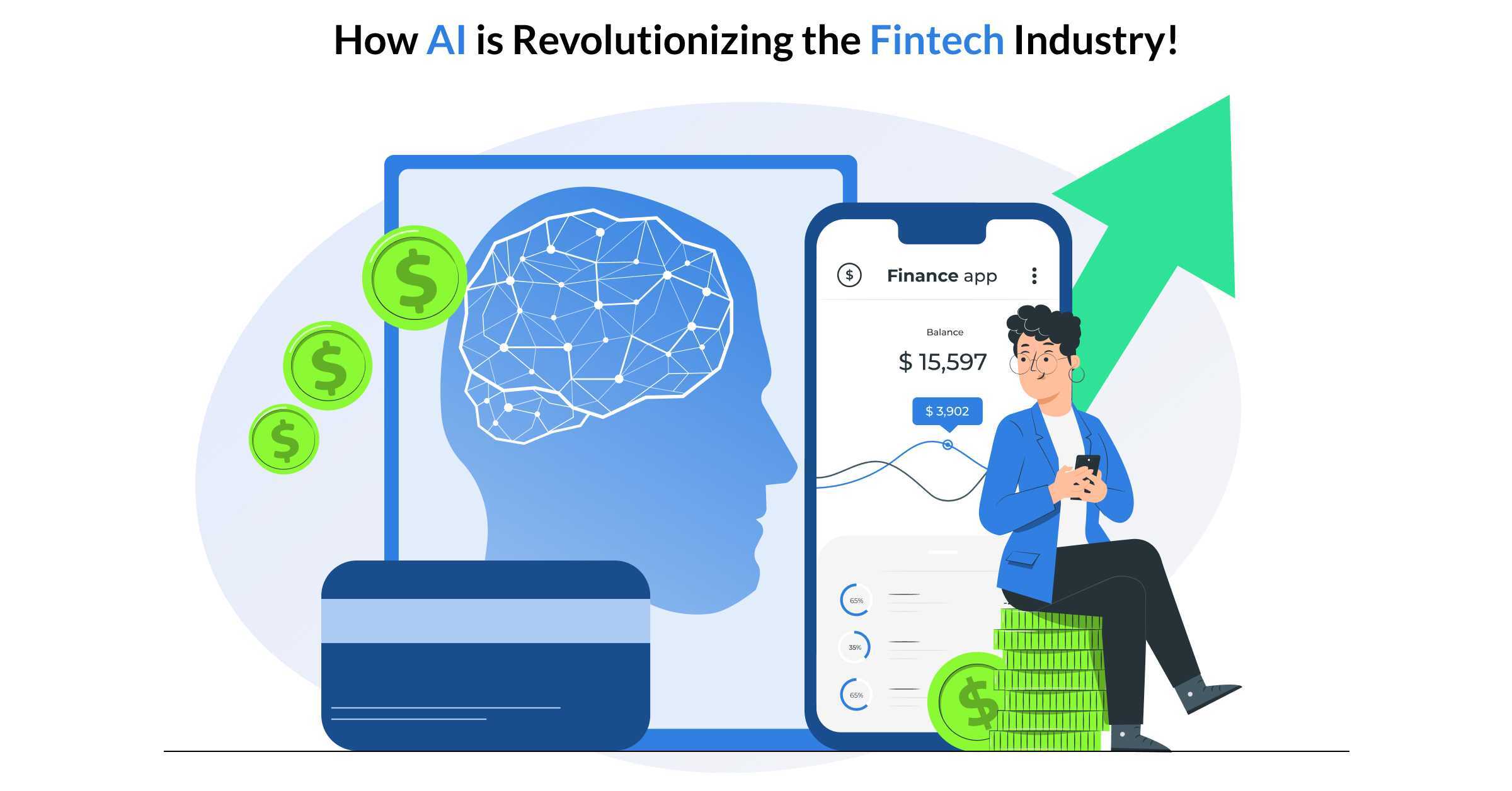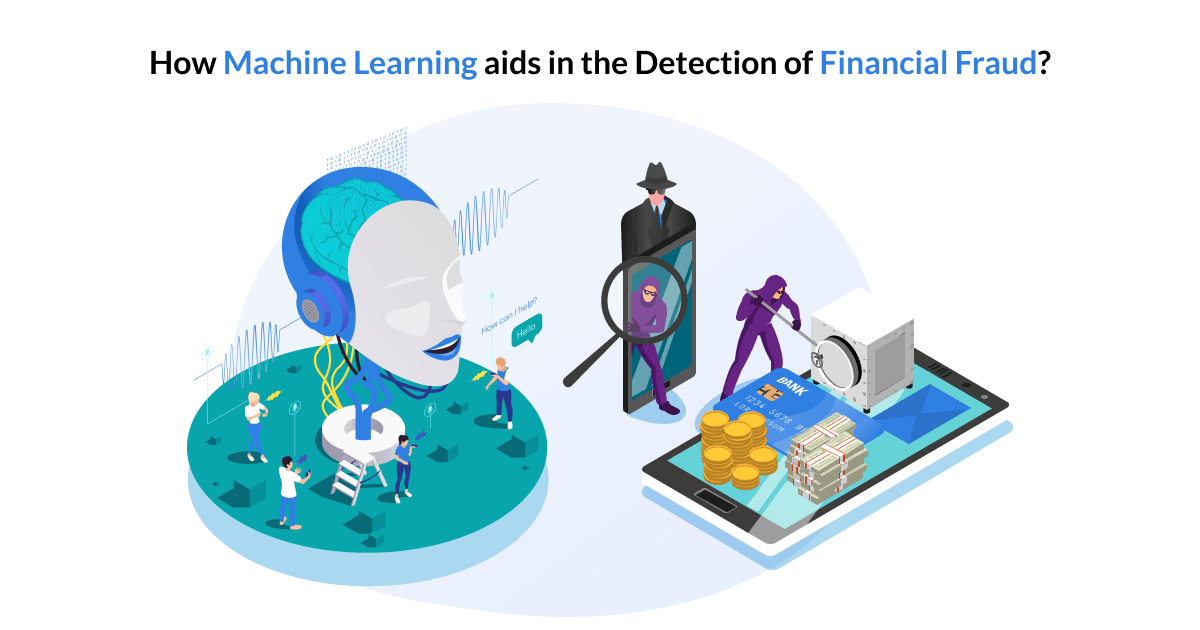Introduction
Financial technology, or FinTech, has revolutionized the financial industry by providing accessible and affordable services to people who were previously underserved by traditional banking.
Financial technology, or FinTech, has revolutionized the financial industry by providing accessible and affordable services to people who were previously underserved by traditional banking.
FinTech has also played a critical role in promoting financial literacy and inclusion by making it easier for individuals to manage their finances, invest their money, and access credit.
In this blog, we will explore how technology is making finance more accessible and the benefits, challenges, and opportunities that come with it.
Benefits of the FinTech Industry for Financial Literacy
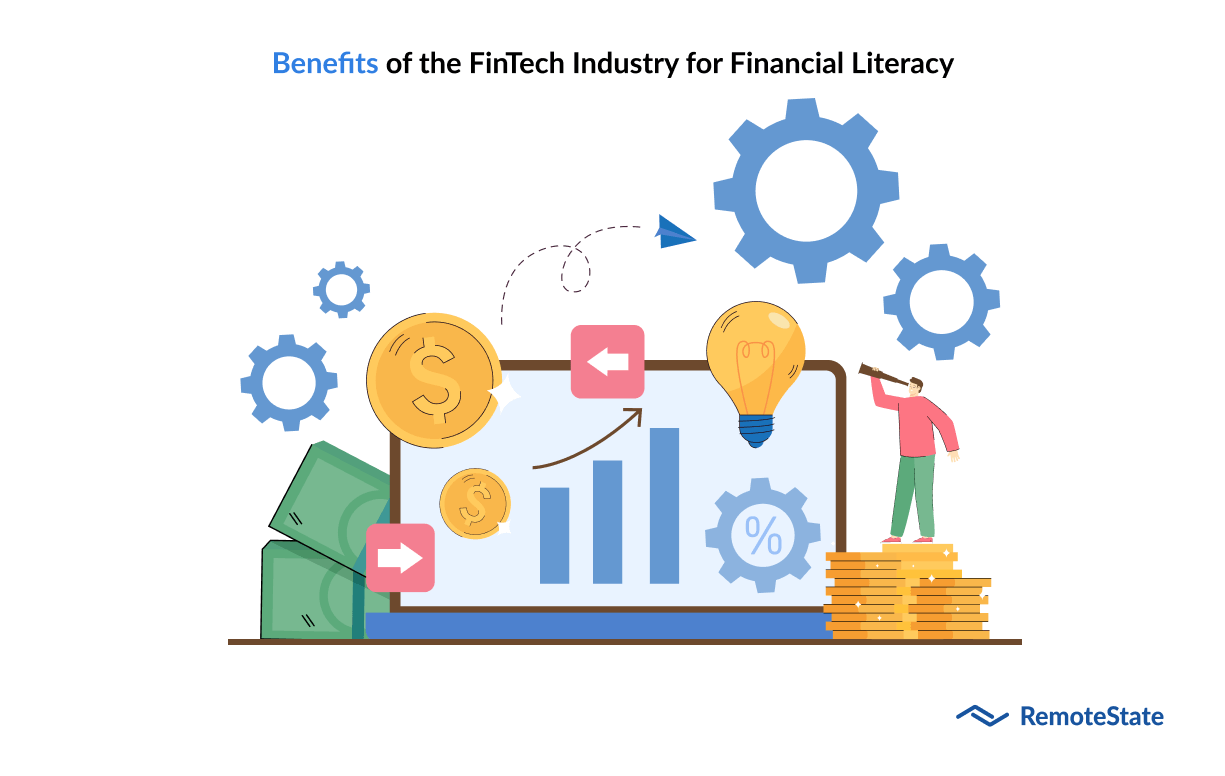
Increased Access to Financial Services
One of the significant advantages of FinTech is its ability to provide access to financial services for people who are not served by traditional banks. For example, people living in rural areas often face challenges in accessing banking services. However, with FinTech, they can easily access banking services through their mobile phones or computers.
This has increased financial inclusion and has empowered people to take control of their financial lives.
Simplified Investment and Trading
FinTech has made it easier for people to invest their money and trade in the financial markets. With online trading platforms, people can buy and sell stocks, bonds, and other securities with ease.
They can also access investment tools and resources that were once only available to professional investors. This has led to increased financial literacy as people learn more about investment and trading.
Personalized Financial Advice
FinTech has also enabled the provision of personalized financial advice to individuals. Robo-advisors use algorithms to provide tailored investment advice based on an individual's financial goals, risk tolerance, and other factors.
This has made financial advice more affordable and accessible to a broader range of people, especially those who cannot afford traditional financial advisory services.
Enhanced Financial Management
FinTech has also made financial management easier for individuals. With personal finance apps, people can track their expenses, create budgets, and set financial goals. These apps provide users with real-time updates on their finances, allowing them to make informed decisions about their spending and saving habits.
This has improved financial literacy by making it easier for people to understand their finances and take control of their financial lives.
Access to Credit
FinTech has also made it easier for people to access credit. Online lenders use data analytics and algorithms to assess the creditworthiness of individuals and provide them with loans at competitive rates. This has increased access to credit for individuals who were previously underserved by traditional lenders, such as those with low credit scores or those without a credit history.
This has improved financial literacy by making it easier for people to understand the lending process and the factors that affect their credit scores.
Financial Education
FinTech has also played a significant role in promoting financial education. Online resources, such as blogs, videos, and podcasts, provide people with free educational content on various financial topics.
This has made financial education more accessible and affordable, enabling people to learn more about managing their finances, investing, and trading.
Challenges of the FinTech Industry for Financial Literacy
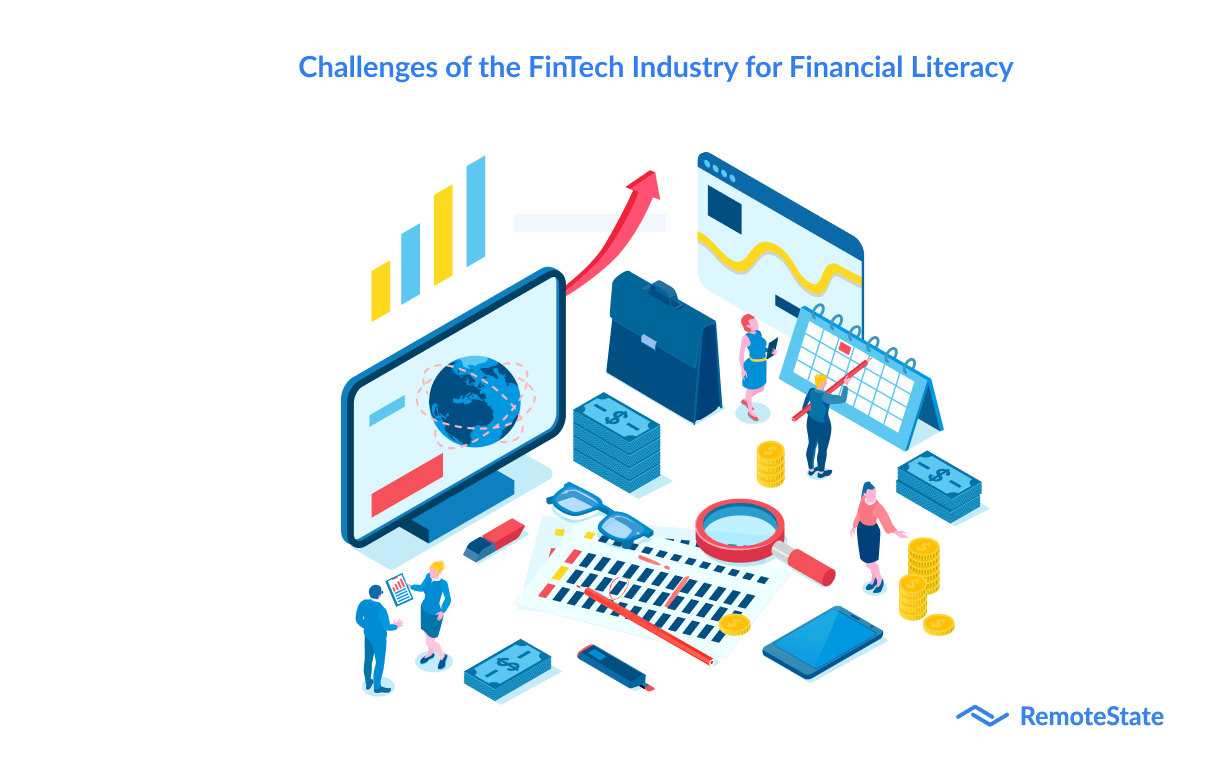
Cybersecurity Risks
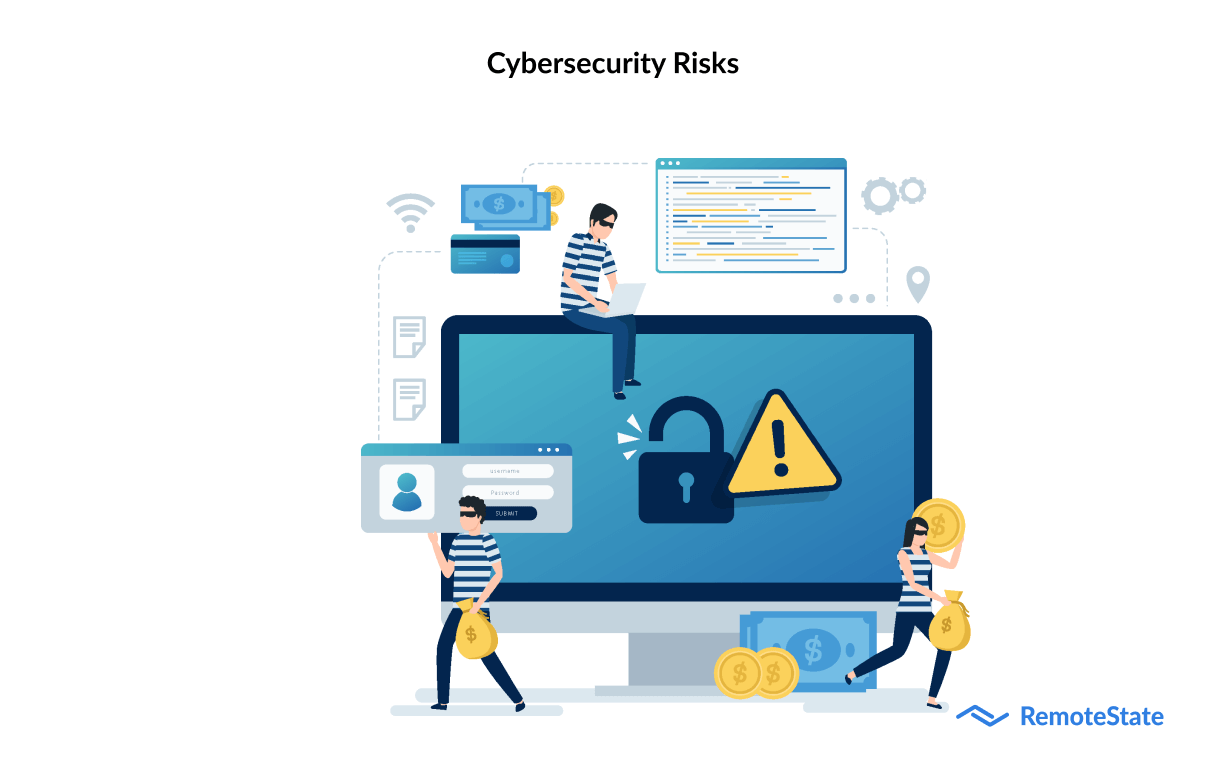
One of the significant challenges of FinTech is cybersecurity risks. As more financial transactions take place online, there is an increased risk of cyber-attacks, which can result in the loss of personal and financial information.
This can have severe consequences for individuals, such as identity theft and financial fraud.
Data Privacy Concerns
Another challenge of FinTech is data privacy concerns. With the collection of vast amounts of personal and financial information, there is a risk that this information could be misused or sold to third parties.
This can result in a breach of privacy, which can be challenging to recover from.
Lack of Regulation
FinTech is a relatively new industry, and there is a lack of regulatory frameworks to govern it. This has led to a lack of standardization and transparency, which can pose risks for consumers. For instance, some FinTech companies may not adhere to ethical practices, resulting in unscrupulous behavior that could harm consumers.
This lack of regulation has also made it difficult for individuals to seek recourse when they are aggrieved.
Financial Illiteracy
Despite the efforts made by FinTech to promote financial literacy, there is still a significant proportion of the population that lacks basic financial literacy. This means that many people may not be able to take full advantage of the opportunities offered by FinTech to manage their finances effectively.
Additionally, some people may not have access to the necessary technology or may lack the skills to use it effectively, which can limit their ability to benefit from FinTech.
Displacement of Traditional Banking
The rise of FinTech has also led to the displacement of traditional banking. As more people move towards online banking and digital payments, traditional banks may struggle to remain relevant.
This could have negative consequences for those who rely on traditional banks for financial services, particularly in rural areas or low-income neighborhoods.
Overreliance on Technology
Another challenge of FinTech is an overreliance on technology. As financial transactions move online, there is a risk of technology failures or disruptions that could result in financial losses.
Additionally, some people may become too reliant on technology to manage their finances, which could lead to complacency or a lack of critical thinking about financial decisions.
Opportunities for the FinTech Industry and Financial Literacy
Collaboration with Traditional Banks
FinTech companies have the opportunity to collaborate with traditional banks to provide a more comprehensive range of financial services. Traditional banks have established networks, regulatory frameworks, and expertise, while FinTech companies offer innovation and agility.
Working together could result in a better customer experience, increased financial inclusion, and improved financial literacy.
Integration of Artificial Intelligence (AI)
The integration of AI in FinTech has the potential to improve financial literacy significantly. AI-powered chatbots can provide personalized financial advice, answer questions, and guide users through financial processes.
This could result in a more engaging and interactive experience, which could enhance financial literacy and promote better financial decision-making.
Blockchain Technology
Blockchain technology has the potential to improve financial literacy by providing a secure, decentralized system for financial transactions.
This could result in increased transparency, reduced transaction costs, and improved efficiency. Additionally, blockchain technology could help to address issues related to data privacy and cybersecurity risks.
Gamification
Gamification is a technique that uses game mechanics to encourage engagement and learning. FinTech companies could use gamification to promote financial literacy by creating interactive games or simulations that teach users about financial concepts and practices.
This could make financial education more fun and engaging, particularly for younger generations.
Personalization
Personalization is a key feature of FinTech, and it could be used to improve financial literacy. FinTech companies could provide users with personalized financial content, such as articles, videos, and podcasts, based on their interests and financial goals.
This could result in a more tailored and engaging experience, which could promote better financial decision-making.
Financial Inclusion
Financial inclusion is a critical opportunity for FinTech to promote financial literacy. By providing access to financial services for people who were previously underserved by traditional banks, FinTech could empower individuals to take control of their financial lives.
This could result in improved financial literacy, increased financial stability, and better economic outcomes for society as a whole.
Conclusion
FinTech has made significant strides in promoting financial literacy and inclusion by providing accessible and affordable financial services to people who were previously underserved by traditional banks.
However, there are still challenges that need to be addressed, such as cybersecurity risks, lack of regulation, and financial illiteracy.
By collaborating with traditional banks, integrating AI, using blockchain technology, gamification, personalization, and promoting financial inclusion, FinTech has the opportunity to address these challenges and promote financial literacy further.
Overall, FinTech is making finance more accessible, affordable, and convenient. It has the potential to improve financial literacy significantly, resulting in better financial decision-making and improved economic outcomes for individuals and society as a whole.
However, it is crucial to address the challenges that come with FinTech, such as cybersecurity risks and lack of regulation, to ensure that consumers are protected and financial literacy is promoted effectively.
How Remotestate is Empowering Financial Literacy through FinTech Solutions?
Remotestate can help promote financial literacy through the development of innovative FinTech solutions. Remotestate has experience working with FinTech companies to develop cutting-edge platforms that address the challenges of financial inclusion, accessibility, and affordability.
Remotestate can help FinTech companies incorporate AI, blockchain, and other technologies to enhance financial education and promote better financial decision-making.
By leveraging its expertise in software development, Remotestate can create customized FinTech solutions that meet the unique needs of its clients and their users. With a focus on user experience and security, Remotestate can help FinTech companies build platforms that are intuitive, easy to use, and secure.
FAQs
What is FinTech?
FinTech refers to the use of technology to provide financial services. It includes companies that offer digital payments, online banking, investment management, and other financial services.
How does FinTech promote financial literacy?
FinTech promotes financial literacy by providing accessible and affordable financial services to people who were previously underserved by traditional banks. It also uses innovative technologies such as AI, gamification, and personalization to enhance the financial education experience for users.
What are the challenges of FinTech?
The challenges of FinTech include cybersecurity risks, lack of regulation, displacement of traditional banking, overreliance on technology, and financial illiteracy.
How can FinTech address these challenges?
FinTech can address these challenges by collaborating with traditional banks, integrating AI, using blockchain technology, promoting financial inclusion, and enhancing financial education through gamification and personalization.
What are the benefits of FinTech?
The benefits of FinTech include increased financial inclusion, improved financial literacy, reduced transaction costs, increased efficiency, and convenience.
Is FinTech safe?
While there are cybersecurity risks associated with FinTech, many FinTech companies take measures to ensure the security of their platforms and user data. It is essential to do your research before using any FinTech services and to follow best practices for online security.
Can FinTech replace traditional banking?
While FinTech is disrupting traditional banking, it is unlikely to replace it entirely. Traditional banks offer established networks, regulatory frameworks, and expertise that are valuable in the financial services industry.
However, FinTech and traditional banking can work together to provide a more comprehensive range of financial services.
Publication Date
2023-05-16
Category
Fintech
Author Name
Sajal Nehra

